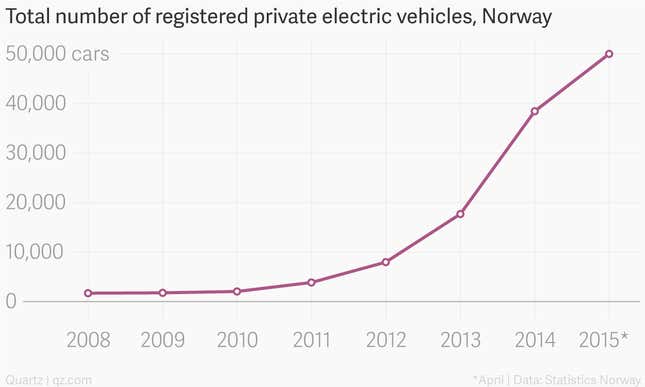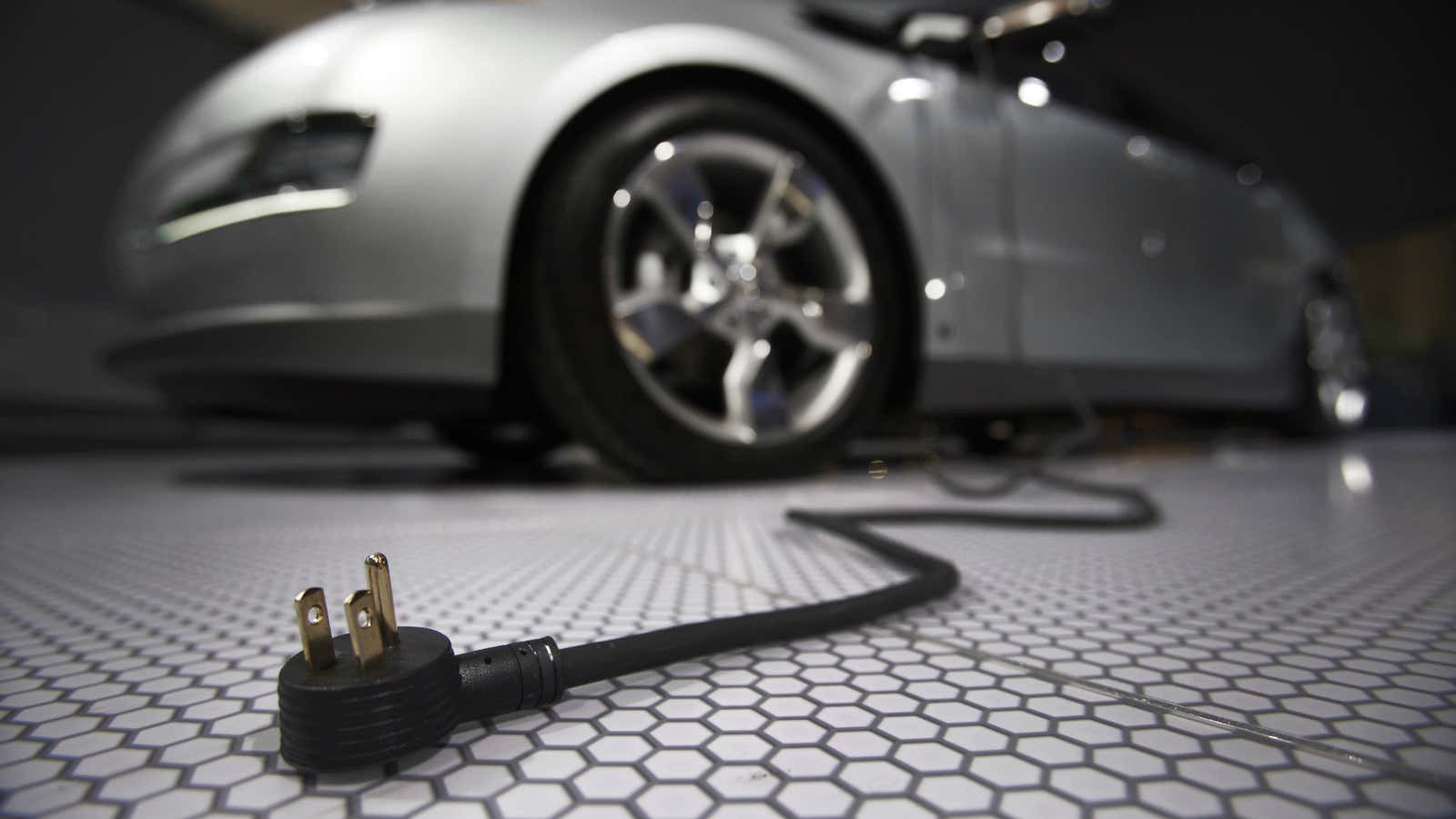In the first three months of this year, Norwegians registered 8,112 plug-in electric vehicles, up 40% from the 5,775 registered in the same period last year.
That’s far fewer than America’s nearly 15,000. But it represents the highest proportion of electric car registrations in the world—by a long margin. According to IHS Automotive, a research firm, 33.1% of all car registrations in the first quarter were of plug-in electric vehicles (distinct from pure hybrids that cannot be plugged in). In the US, the corresponding figure stands at 0.8%. (Indeed, the number of electric vehicles registered in the US rose by precisely 33 over the same quarter last year.)
The comparison is somewhat unfair—Norway is an exception, far ahead even of its European peers. Second on the list is the Netherlands but even there electric cars make up only 5.7% of total vehicle registration. And the US does better than France or Germany, with 0.6% and much better than China, where plug-in electric vehicles make up a puddling 0.3% of total registrations.

So what does Norway have that other advanced nations don’t? In a word: incentives. Norwegians pay some of the world’s highest taxes, but they also receive tremendous benefits for buying electric cars. Electric cars are exempt from value added tax (VAT) and purchase tax, which on average in Norway add 50% to the cost of a vehicle. In addition, they are exempt from road tolls, tunnel-use charges, and ferry charges. Moreover, they get free parking, free charging, and the freedom to use bus lanes.
Indeed, Norway’s electric car incentives have been so successful that some of them had to be curtailed. In May, all the major political parties agreed that electric car owners will have to pay half of the road tax from 2018 and all of it from 2020. VAT exemptions will also be replaced by a subsidy, which will probably be revoked over time. And local authorities can now decide whether to offer free parking, exemption from tolls, and the use of bus lanes.
The next set of figures out from IHS will therefore be worth watching. In Japan, electric car registrations fell by a fifth in the first quarter this year, at least in part due to some some incentives ending.




